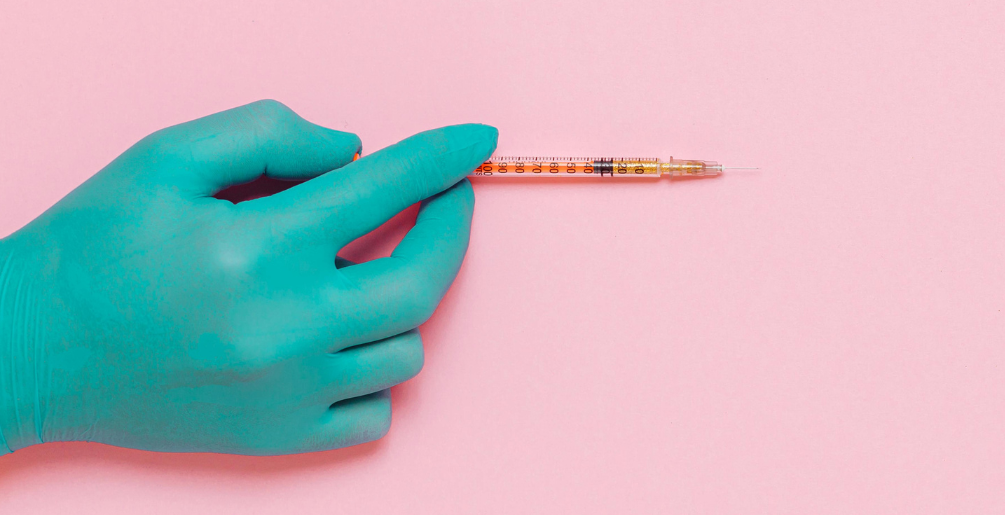Tackling HPV vaccination hesitancy: Insights from my research experience in Lebanon

Dayan Zorkot
Master’s student, Nutritional Sciences
In recent months, I had the remarkable opportunity to conduct research on Human Papillomavirus (HPV) vaccination hesitancy during my internship with the Women Integrated Sexual Health Program (WISH) at the American University of Beirut Medical Center (AUBMC) in Lebanon. Supported by the Gelman Global Scholars Fund and the School of Public Health Women’s Health Fund from the University of Michigan, this experience not only enhanced my research skills but also deepened my understanding of public health challenges in the Middle East. Additionally, it inspired me to start my own women’s health and lifestyle brand, Axis Eius—a digital platform designed to empower women through expert-written health articles.
HPV is a significant public health issue, as it can lead to various cancers, most notably cervical cancer—a leading cause of cancer-related deaths among women globally, especially in low-income countries. Despite the availability of an effective vaccine, hesitancy persists due to sociocultural, economic, and informational barriers. Overcoming these challenges is essential for improving vaccination rates and ultimately reducing HPV-related diseases and cervical cancer.
My research focuses on understanding the factors that contribute to HPV vaccination hesitancy among parents in Lebanon. By identifying key determinants and assessing communication strategies used by physicians, we aim to increase vaccination rates and reduce the incidence of cancers caused by this sexually transmitted infection.The Women Integrated Sexual Health Program’s efforts are pivotal in addressing these public health challenges and advancing women's health in the region.
During my internship, I actively collected and analyzed data on HPV vaccine hesitancy by surveying parents of children under 25 years. We aimed to understand their beliefs and concerns, evaluate the effectiveness of physician communication strategies, and identify key determinants of vaccine hesitancy. These findings will guide future public health interventions.
The support from the Gelman Global Scholars Fund and the Women’s Health Fund was crucial. Their funding enabled my travel to Lebanon and collaboration with the WISH team. This invaluable experience provided insights into the public health landscape in Lebanon, supporting ongoing efforts to enhance women’s health in similar regions.
Additionally, Axis Eius, the women’s health platform that I was inspired by this internship experience to create, is meant to be a journal for navigating modern womanhood by creating a space that discusses research breakthroughs in women’s physical and mental health, and fostering a community of informed women.
Through my diverse cultural experiences during this internship, I learned the importance of adapting health messages to resonate with local communities. By considering socio-economic, cultural, and religious factors, I developed culturally sensitive surveys and interview questions. This approach is invaluable as I aspire to pursue a career in medicine.
The work at WISH significantly impacts women's lives in Lebanon and the Middle East. By addressing HPV vaccination hesitancy, I helped to promote informed reproductive health choices with the goal of reducing infection and cancer rates, illustrating the need to tackle pressing global public health issues. I am grateful for the chance to contribute to this vital work and look forward to continued learning from the dedicated professionals at WISH AUBMC.
About the Author
 Dayan Zorkot is a Master of Public Health student in the Department of Nutritional Sciences at the University of Michigan School of Public
Health, and an intern at the Women Integrated Sexual Health Program (WISH) of American University
of Beirut Medical Center (AUBMC) in Lebanon. She is also the founder and editor of
Axis Eius, a digital platform focused on women's health. Dayan hopes to use her public
health training to pursue a career in medicine, and continue her journey as a women’s
health advocate and researcher.
Dayan Zorkot is a Master of Public Health student in the Department of Nutritional Sciences at the University of Michigan School of Public
Health, and an intern at the Women Integrated Sexual Health Program (WISH) of American University
of Beirut Medical Center (AUBMC) in Lebanon. She is also the founder and editor of
Axis Eius, a digital platform focused on women's health. Dayan hopes to use her public
health training to pursue a career in medicine, and continue her journey as a women’s
health advocate and researcher.
- Read more about Global Public Health experiences at Michigan Public Health
- Support research and engaged learning at Michigan Public Health.
